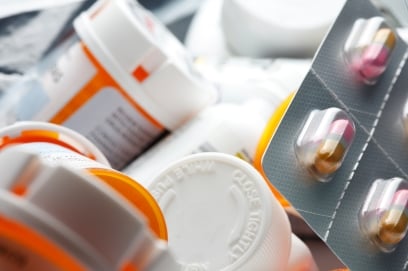EpiPen maker Mylan may still end up making more money than before as it also owns a generic version

Months after the EpiPen overpricing controversy, US insurer Cigna has dropped coverage for the US$600 epinephrine auto-injector in favor of a generic alternative. At the same time, drugstore chain CVS has announced a near-50% price discount of rival auto-injector Adrenaclick, bringing the price down to US$109, according to NBC News.
“It is positive news for our customers,” said Cigna representative Karen Eldred in a statement. “The generic version, available now in pharmacies, has the same drug formulation and device functionality as the branded medication, but at substantial cost savings.” The move is largely a positive for Mylan also, given the fact that it also produces the EpiPen generic.
CVS Pharmacy explained its reasoning for dropping the product, saying it “recognized that there was an urgent need in the marketplace for a less expensive epinephrine auto-injector for patients with life-threatening allergies,” said the chain’s president Helena Foulkes.
Peter Maybarduk, director of the Access to Medicines group for Public Citizen, referred to the moves as “a start,” giving competitors and insurance providers the confidence to put more pricing pressure on EpiPen maker Mylan. “We need a lot more action and we need legislative action against price spikes [imposed by drug companies],”he told NBC News.
Mylan became the subject of national uproar in the US in 2016 after NBC broke the story of parents scrambling to keep up with the EpiPen’s soaring prices (the company had increased EpiPen ‘s price by over 400%).
This was followed by the revelation that the actual manufacturing cost of EpiPen was US$30 per pen, with Mylan CEO Heather Bresch explaining that US$274 goes to various middlemen. That explanation did little to satisfy Mylan’s critics, however, especially when NBC revealed that executive compensation at the drug-maker had risen by 600 per cent.
Responding to the public outcry, the company offered several options to defray costs for patients, including a new generic version of its own product that’s half the price.
“We are aware of the recent changes to the Cigna formulary,” Mylan spokeswoman Julie Knell told NBC News. “These formulary changes were anticipated and are why we anticipate successful generic utilization.”
As for CVS’s announced discount, Knell said it showed “that the epinephrine auto-injector market is competitive” and Mylan’s decision to come out with a generic EpiPen “has further enhanced competition and access for patients.”
Related stories:
Excess med spending in Canada is pouring billions down the drain
Mylan CEO grilled on EpiPen price gouging
“It is positive news for our customers,” said Cigna representative Karen Eldred in a statement. “The generic version, available now in pharmacies, has the same drug formulation and device functionality as the branded medication, but at substantial cost savings.” The move is largely a positive for Mylan also, given the fact that it also produces the EpiPen generic.
CVS Pharmacy explained its reasoning for dropping the product, saying it “recognized that there was an urgent need in the marketplace for a less expensive epinephrine auto-injector for patients with life-threatening allergies,” said the chain’s president Helena Foulkes.
Peter Maybarduk, director of the Access to Medicines group for Public Citizen, referred to the moves as “a start,” giving competitors and insurance providers the confidence to put more pricing pressure on EpiPen maker Mylan. “We need a lot more action and we need legislative action against price spikes [imposed by drug companies],”he told NBC News.
Mylan became the subject of national uproar in the US in 2016 after NBC broke the story of parents scrambling to keep up with the EpiPen’s soaring prices (the company had increased EpiPen ‘s price by over 400%).
This was followed by the revelation that the actual manufacturing cost of EpiPen was US$30 per pen, with Mylan CEO Heather Bresch explaining that US$274 goes to various middlemen. That explanation did little to satisfy Mylan’s critics, however, especially when NBC revealed that executive compensation at the drug-maker had risen by 600 per cent.
Responding to the public outcry, the company offered several options to defray costs for patients, including a new generic version of its own product that’s half the price.
“We are aware of the recent changes to the Cigna formulary,” Mylan spokeswoman Julie Knell told NBC News. “These formulary changes were anticipated and are why we anticipate successful generic utilization.”
As for CVS’s announced discount, Knell said it showed “that the epinephrine auto-injector market is competitive” and Mylan’s decision to come out with a generic EpiPen “has further enhanced competition and access for patients.”
Related stories:
Excess med spending in Canada is pouring billions down the drain
Mylan CEO grilled on EpiPen price gouging



